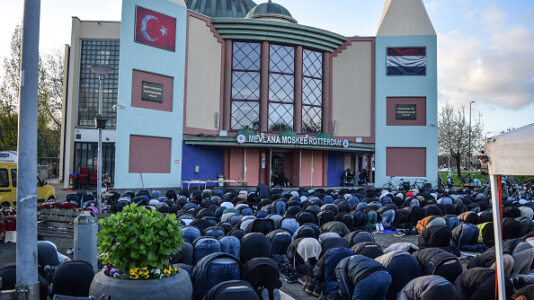Mária Schmidt, director-general of the House of Terror Museum and the 21st Century Institute, has called for defunding the Hungarian Academy of Sciences (MTA) in a recent blog post.
“The state should withdraw from financing the MTA, take back the real estate and other assets granted to it, except for the headquarters, which should be ensured in a dignified condition, as well as ensuring that the academicians who gather every six months can deliberate in a dignified manner. This is in the interest of Hungarian scholarship and the traditions of Hungarian scientific life.”
Her post comes after a statement from the Academy’s Department of Economics and Law in early April, which said that if the prime minister were to visit the event organized to mark the 200th anniversary of the academy’s founding, a significant number of participants would walk out of the room. The MTA, founded by Count István Széchenyi in 1825, was reacting to Viktor Orbán’s speech on March 15, in which the prime minister spoke about bedbugs.
“In his speech at the state ceremony, the prime minister violated the written and unwritten norms in several respects that the prime minister cannot violate in a constitutional state. We consider the inciting dehumanization of various social groups in public, as morally unacceptable, legally responsible, and, given modern history, downright dangerous behavior, as well as the tendentious references to the fact that certain communities have lived in the country for too long and have survived too much,” they wrote.
Schmidt calls the statement “pure politicization.”
In her response, Schmidt writes that “the Hungarian Academy of Sciences is Stalinism living with us. Its members enjoy a series of privileges that last them their entire lives, that is, they receive a life annuity.”
“To receive this, they do not have to show any performance after their admission, they do not have to meet any requirements. In many cases, their selection is not performance-based, because their networking ability, caste, and the lobbying power of their friends and allies are at least as important,” she wrote.
“The authority of the Hungarian Academy of Sciences was greatly damaged by the fact that during the communist period, its members and officials were selected primarily on the basis of their commitment to the party state. The academics who were admitted at that time retained their membership even after the change of regime, since – and this can now be rightly said – the workers in the knowledge industry, also known as intellectuals, including the media, cultural and academic elite, made the transition to democracy without any losses.”
According to her, the signatories are all “rehearsed ballibs,” while she also added: “Those employed in the knowledge industrial complex continue to serve (…) Because of their network strength, embeddedness and retained positions, they still have considerable power.”
Schmidt, in particular, called out the lack of performance of MTA members, saying it “does not differ significantly from the performance of an average Hungarian researcher who is not an academic. Citing stats, she said that “82.4 percent of academicians have not published a high-impact article in the last 10 years. The proportion of people with one or two such articles is 14.3%. There are only 11 academicians who have had more than two high-impact articles in the last 10 years.”
“In other words, being an academician means rank, privilege, lifelong livelihood and many privileges without performance.”
“It is time to finally end the artificial separation of these institutes and universities because this is nothing more than the legacy of communism that is living with us, and as such, it cannot be justified by anything. I propose, in the interest of restoring university autonomy, to return academic qualification to where it belongs and has a role, that is, to the universities,” she wrote.





